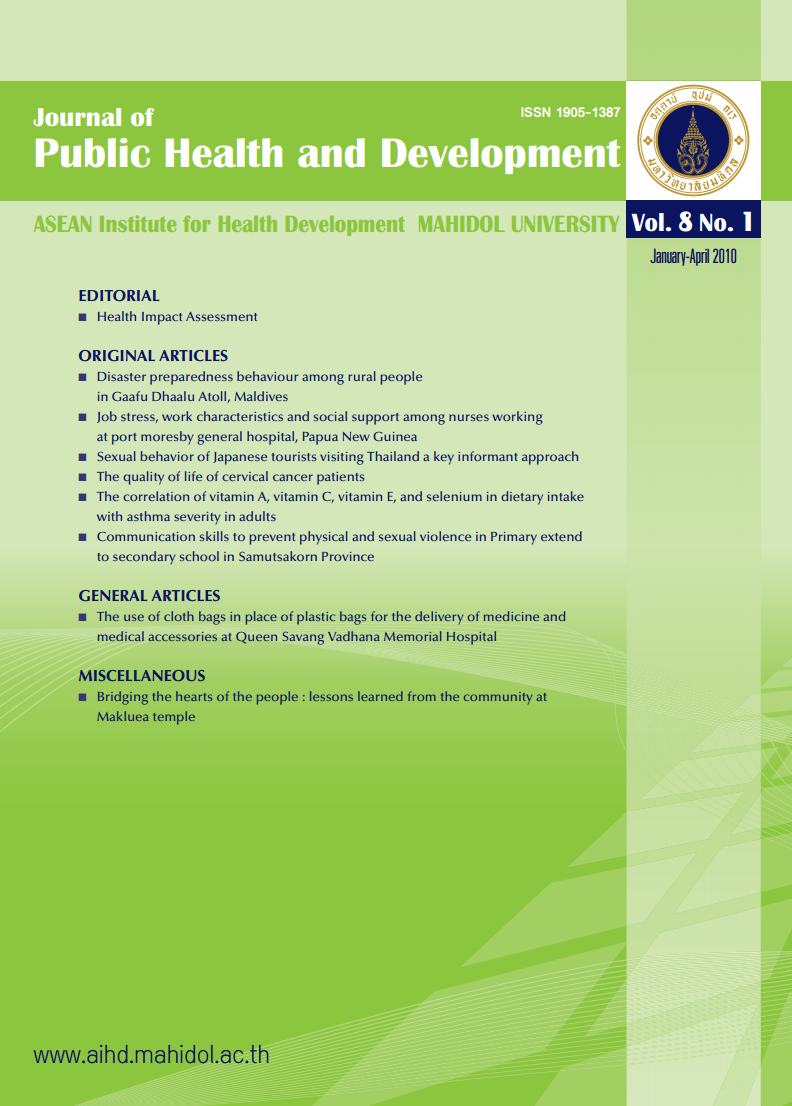Communication skills to prevent physical and sexual violence in Primary extend to secondary school in Samutsakorn Province
Main Article Content
Abstract
This study is aimed at using a participatory learning program to enhance communication skills of students in primary extend to secondary school, Samutsakorn province to prevent physical and sexual violence. A whole school-based quasi-experimental study with non equivalent group was conducted among 2 schools. The experimental group, were 34 students in primary school and 179 students in secondary school. The control group, were 122 students in primary school and 95 students in secondary school. Pre-test was done in both groups. Among the experimental group, a participatory learning program with games, group process, role play, brainstorm, discussion and conclusion was sequencing conducted during 11 weeks. While the control group, no intervention was carried out but all
of learning modules and materials were given to the teachers who participatorily observed all activities at the end of study. Post-test was done after completed all activities. The intervention process was conducted during June-September, 2005.
Before program implementation, means score of communication skills of the experimental group was not different from the control group (p=0.175) while after program implementation between the two groups were significant different (p=0.04). Means paired different score (afterbefore) in the experimental group was significant increased. (p= 0.014) while the control group was not significant increased.
A communication skills program to prevent school violence through participatory learning of students under close monitoring from teachers and parents will help students to understand and to realize physical and sexual violence problem as well as to communicate properly with each other. This approach is effective for prevention of school violence and should be further implemented in other schools in the future.


